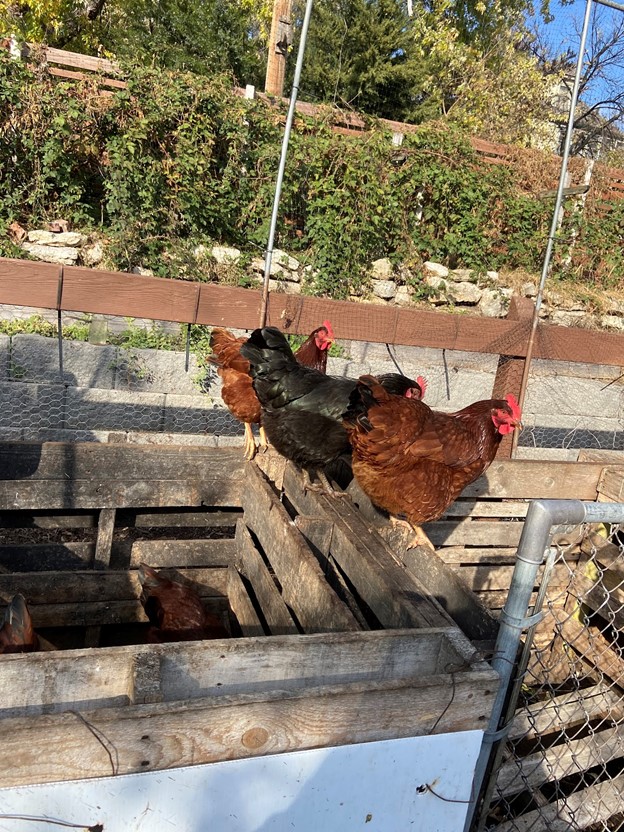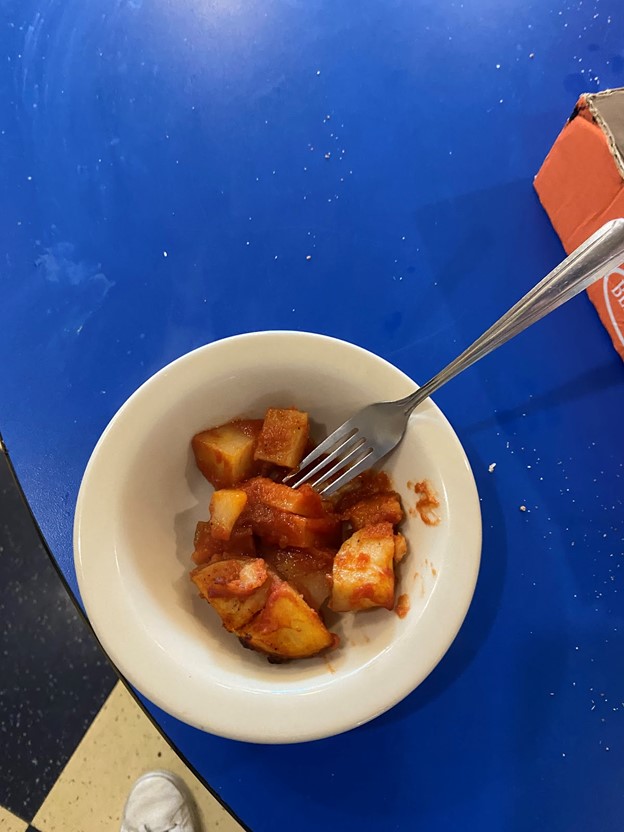In the heart of Kansas City, at Cherith Brook Catholic Worker House, volunteers for Food Not Bombs gather every Sunday to serve free vegan meals to those in need. I had the privilege of joining the Kansas City chapter, where I not only witnessed their admirable work but also had the opportunity to sit down with some of the volunteers and gain insights into their motivations.

Food Not Bombs is a worldwide organization working to achieve several goals. According to their website, Food Not Bombs “is trying to inspire the public to participate in changing society and focus [their] resources on solving problems like hunger, homelessness and poverty while seeking an end to war and the destruction of the environment. [They] are also showing by example that [people] can work cooperatively without leaders through volunteer effort to provide essential needs like food, housing, education and healthcare.”
At the core of Food Not Bombs’ philosophy is the belief that hunger and poverty are not insurmountable challenges but rather curable issues in the face of abundant supplies and production. Michael, a volunteer, highlighted, “Food Not Bombs wants to show how little effort it would take to feed everyone and how much effort we put into warfare instead.” Kara, another volunteer, emphasized the inclusivity of Food Not Bombs, stating, “There is no line between those who serve and those who eat; there is no barrier to access.”
In my conversation with volunteer Emi, they spoke about the profound impact of reconnecting with their community through Food Not Bombs: “Capitalism has removed the connection between community and my labor, but this restores that. I can see how my work actively helps people.” Reestablishing community bonds not only addresses immediate hunger but also fosters a sense of purpose and fulfillment among volunteers.
The volunteers discussed how much this work meant to them. Micheal told me “Food not bombs is not exhausting, extra work I have to do on my weekend. It fills my bucket.” Emi summed up the collective sentiment of volunteers, “When I get off work, I am looking forward to [volunteering].” I felt the eagerness and fulfillment that the volunteers described—even after just one visit. Sitting at the [food preparation] table, I engaged in conversations about current events and the philosophy of art while cutting up potatoes, tomatoes, peppers and corn. The atmosphere was remarkably relaxed, and the volunteers welcomed me with open arms.
Once the meal was ready, we all had the chance to taste our creation before serving it up. The ketchup potato and greens, paired with corn, tomatoes and peppers were delicious. It felt great to see and taste what we had made together. When it came time to serve the food, I felt a profound sense of fulfillment. The gratitude expressed by the recipients was palpable; their smiles and words of thanks resonated deeply. I found immense joy in serving, knowing that the collective efforts of myself and the other volunteers were making tangible differences in the lives of others.

Anyone can volunteer and I encourage you to do so. When I asked what makes a good volunteer Emi stressed the importance of cooperation, stating, “Cooperation is the best trait to bring. It’ll go way farther than any other skill.” Food Not Bombs thrives on the collaborative efforts of its volunteers, who come together to prepare and distribute meals, embodying the power of collective action. A fellow Jewell student who regularly volunteers with Food Not Bombs, B.J., says “It’s not often you find a group that balances feeding their community with respect for animals’ rights and efforts to address systemic issues that cause hunger and waste. It makes what I’m doing feel worthwhile every time.”
By volunteering with Food Not Bombs, I became a part of a movement that believes in the inherent goodness of humanity and the ability to create positive change through collective action. You can do the same. Roll up your sleeves and witness the impact you can make by continuing to spread love, nourishment and hope to communities in need.
